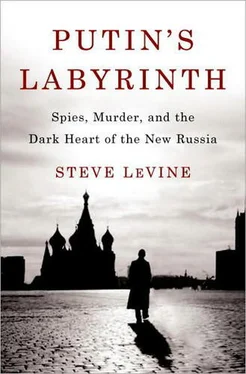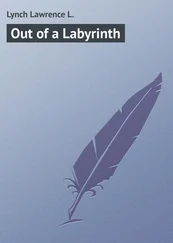Time softens memories. The images that had caused me to view Russians as callous toward the lives of most others gradually slipped from my mind. But then came a series of reminders of the anguishing events I had seen in Chechnya.
In 2000, a Russian nuclear submarine called the Kursk sank in the icy waters of the Barents Sea. All 118 aboard perished while rescue efforts proceeded at a snail’s pace and Moscow spent most of its energy trying to blame the West for the slow response.
In 2002, Chechen militants stormed a Moscow theater, taking several hundred spectators hostage. Russian special forces pumped an opiate gas into the building, rushed it, and shot the terrorists dead. Only, they forgot to make preparations for rescuing the hostages, and 129 of them succumbed—untreated—in their seats, on the sidewalk outside, in buses on the way to hospitals, and elsewhere.
In 2004, Chechen terrorists took some 1,200 children, parents, and teachers hostage in an elementary school in Beslan, a town in the southern Russian region of North Ossetia. Bedlam erupted on the third day of the standoff; shooting and explosions killed some 330 children and adults as hostages and terrorists fled the building.
In the fall of 2006, two outspoken critics of Vladimir Putin, by then Russia’s president, were murdered. Anna Politkovskaya was shot execution style and Russian defector Alexander Litvinenko, a former KGB officer, died of poisoning by a nuclear toxin.
I had been under no illusions about Putin. His bare-knuckle approach to governing Russia had been apparent for some time. But now it was hard to avoid the conclusion that something more ominous was happening. What I was seeing in Russia went beyond the question of leadership style. Putin had set about restoring the legacy of brute Russia.
It was not that his fingerprints were on every untoward event. They didn’t have to be. Rather, it was the complicity of his inaction. A high-profile murder can go unsolved anywhere. A hostage situation can go awry even when police are highly skilled. But after the third, fourth, or fifth such outrage, it becomes clear that something fundamental is amiss. At the very least, in Putin’s Russia the state cannot be counted on to protect the lives of its citizens. At worst, hired killers and those who employ them have reason to believe that they can carry out executions without fear of the law.
There has always been a certain amount of disorder in Russia. That is why many Russians are willing—even eager—to support a ruler with Putin’s instincts. But I find it troubling that he has been unusually selective in exercising his power on behalf of the law. He seems disinterested in stopping or bringing to justice those who settle accounts with violence or worse. For example, the world has yet to hear him declare, “I will not tolerate, and indeed I will prosecute ruthlessly, anyone who orders or carries out a murder. Neither will I tolerate the death of hostages.” If he had exerted such authority and issued such dictums, Russia might not have experienced the botched aftermath of the theater seizure or the retaliatory killings of Anna Politkovskaya and others.
Without question, he is willing and able to crush those who offend him. Consider this hallmark of the Putin era: his unyielding pursuit and prosecution of a select group of Russian oligarchs. The most notable target was oil kingpin Mikhail Khodorkovsky, Russia’s richest man, who was arrested in 2003 by masked federal agents aboard his private plane on the tarmac of Siberia’s Novosibirsk Airport. He was sentenced to eight years in prison, and his oil company, Yukos, was systematically dismantled and taken over by two state-controlled companies, Gazprom and Rosneft. (In 2008, when under ordinary circumstances Khodorkovsky might have been released on parole, Putin’s prosecutors pursued a slew of fresh charges and his imprisonment for two dozen more years.) Khodorkovsky’s crime? He had ventured into politics, financing Putin’s opponents and presuming to form an influential—perhaps dominant—bloc within parliament. That stepped over the line; politics is the state’s purview, specifically the Kremlin’s. The importance Putin placed on the case was evident. Dozens of prosecutors, auditors, and tax inspectors collectively spent thousands of hours making Russia safe from Khodorkovsky. There is no leniency for perceived political transgressors; Putin is hypersensitive in this regard.
Kukly, a weekly Russian TV show that employed puppets to represent the country’s leaders, is another example. The Putin doll was a wickedly funny dwarf. Putin objected to the skits performed by his likeness, and the producers were warned that the president was off limits, I was told by Grigory Lubomirov, one of the show’s creators. That didn’t disturb the Kukly team, which was accustomed to such reactions. In Yeltsin’s time, for instance, Prime Minister Viktor Chernomyrdin at first strenuously objected to his portrayal. But he relented under the pressure of friends and critics who advised him to acquire a sense of humor, and ended up appearing in a photograph grinning next to his puppet character. Putin was not so gracious. Two years after he became president, the show was canceled.
Khodorkovsky and Kukly were hounded out of the public sphere.
I don’t mean to suggest that other countries occupy a higher moral plane than Russia. The post-9/11 world has upset many people’s presumptions—including my own—that the West in general and the United States in particular can lay claim to generally noble status. We’ve discovered that an American president can treat foreign allies with swaggering bluster while conducting a war of opportunity and employing torture as a policy—with the support of a majority of Americans. In fact, a comparison of contemporary events in Russia, the West, and elsewhere in the world suggests that distinctions between countries and cultures have become barely discernible.
Except that they haven’t. Notwithstanding America’s slippage during the Bush years, the United States, Europe, and large swaths of Asia are not places where journalists are freely assassinated, defecting spies poisoned, or theatergoers gassed to death by their own police.
I deliberately use Japan, Canada, Germany, Britain, France, Italy, and the United States as a comparison group. These are the industrialized countries that were known as the G-7 until Yeltsin successfully argued that Russia was entitled to be a member of the club, and the G-7 became the G-8. In 2007, Putin threw an extravaganza in St. Petersburg as host of the organization’s annual gathering.
But if you are a citizen of Russia, you are more likely than a person in any other G-8 nation to die a premature death, and to do so in a bizarre or cruel way. When I say premature death, I’m not thinking disease, stillbirth, or an automobile accident—although Russians die at a far higher rate in all these categories than citizens of the other seven countries. I mean the kind of death experienced by Anna Politkovskaya or Alexander Litvinenko or the theater hostages—all deaths that were countenanced or at least tolerated by the Russian state.
This book is a chronicle of violence in modern-day Russia, a place that seems unwilling or unable to escape its horrific past. My goal was to tell the story of some of the most prominent victims, people who are remembered largely for what they endured, and how they died. I sought—through the eyes of their friends, family, and colleagues, in addition to the victims’ own writings and private and public utterances—to write a more complete portrait of their lives. Many survivors recounted their own ordeals. The shared testimony paints a disturbing picture of assassination and other brutality, and leaves the unmistakable impression that the Russian state under Putin is at least partly responsible.
Читать дальше












